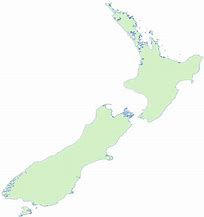Here is the Calm online refresher course

This course is recommended for clinical staff.
This course is designed to give you an understanding of how to recognise and treat anaphylaxis.
This course was refreshed on 1/1/25
 |
This collection contains links to approved National or regional courses. |
This course is required by policy for all clinical employees.
Refreshed 19/09/2024
This course is designed to raise awareness about breastfeeding and the policies that support it. It is appropriate for anyone who may be in contact with a breastfeeding mother.
This course will enable staff to be able to utilise effective communication strategies and remain safe when faced with challenging situations. This will include developing an understanding of the cycle of escalation and the role that communication plays in the de-escalation of a distressed person. The relationship between least restrictive interventions and the decision making process will be explored.
This course is suitable for both clinical and non-clinical staff.
This course is designed to give some basic and clear information to staff working in the health care sector around the COVID-19 virus, in particular;
Your CV is your marketing tool, so it's important that you produce a document that reflects who you are and the work you have done.
In this module you will get the opportunity to have a look at the different types of CVs so that you can consider which style is the right one for you. At the end of the module you will find links to other resources including CV templates and a CV builder tool.

| Allied Health comprises a large and diverse group of registered and non-registered staff. To enable as many people as possible to benefit from the services provided by Allied Health registered and other health professionals working within a Calderdale Framework designed role or service, staff will from time to time, delegate tasks to non-registered support staff. Audience All Allied Health Assistants and Allied Health Professionals beginning work at Te Whatu Ora - Te Tai Tokerau working within Calderdale Framework designed roles or services.. Frequency Within 6 weeks of employment at Te Whatu Ora - Te Tai Tokerau |
|
This course is designed for all nurses, other health professionals registered under the HPCA act 2003 and unregulated healthcare workers (e.g. HCA's, MHAW's, Community Support Workers).
All registered nurses beginning work in Te Whatu Ora Te Tai Tokerau need to complete this education module within the first 12 weeks of employment or as directed from your professional development plan.
This course introduces the initial response actions to be taken in the event of an incident that results in emergency.
It provides the opportunity to consider the various emergency situations that could be faced in the healthcare environment. It is appropriate for clinical and non-clinical staff.
This course is designed to ensure that Registered Nurses and Midwives will provide safe care to patients receiving epidural analgesia.
This courses introduces you to the EvoIQ volumetric pump, including how to set it up, prepare and load IV tubing, programme an infusion, and troubleshoot alarms.
In all its shapes and forms, the pace of change and uncertainty in today's world can be difficult to deal with. Gain an understanding of the human element of change, why people might be resistant to change and how to support each other during times of uncertainty.
This course is mandatory for all Te Whatu Ora Te Tai Tokerau employees. It takes you through how you can uphold your fire safety responsibilities on the job.
This course was refreshed Jan 2024
This course promotes staff awareness on fraud. It is appropriate for anyone involved with requisitioning or anyone who holds delegations.
Course refreshed on 13/09/2023.
This course is mandatory for all new Te Whatu Ora - Te Tai Tokerau employees. It introduces you to who we are, how we work and where to go for key information so you can transition smoothly into your new role.
This course was refreshed Jan 2024
This course is designed to give Registered Nurses orientating to the Renal Unit the knowledge and skills they need to safely use and maintain a patient's haemodialysis access.

Hand Hygiene is one way to reduce our rates of healthcare acquired infections. All Te Whatu Ora - Te Tai Tokerau staff are invited to complete this module, and it is Mandatory for clinical staff.
Refreshed 8/01/2024
This course is mandatory for all new Te Whatu Ora Te Tai Tokerau DHB employees. It covers how to uphold your health and safety responsibilities.
This course was refreshed Jan 2024
This portal contains links to the courses that you will be required to complete as a North Haven Hospice Partner.
This portal contains links to the courses that you will be required to complete as a Hospice Mid-North Partner.
This course is designed to provide Registered Nurses with the knowledge and skills to safely manage a patient with an Implanted Port.
Please complete this online induction after you have completed the Getting Started course.
Please complete this online induction for Health Care Assistants after you have completed the Getting Started course.
This module has been created to ensure consistent safe and competent IDC of adult males across Te Tai Tokerau region. Staff who with in their normal duties would be expected to perform male catheterisations should complete this as a first step in gaining clinical competency. This module is a prerequisite for a Male Indwelling catheterisation (IDCm) skill simulation session. |
This course is part of the IV Therapy course. It covers the different pumps that are used for IV Therapy.
This course has been designed for Midwives to provide the required knowledge and skills to safely manage patients who require intravenous fluids and/or medication. There is a separate IV Therapy course for Registered Nurses.
This course has been designed for Registered Nurses to provide the required knowledge and skills to safely manage patients who require intravenous fluids and/or medication. There is a separate IV Therapy course for Midwives.
This module is designed for practitioners who are considering attending a supervision workshop as well as those seeking supervision. It will provide you with an overview of what supervision is, the benefits of supervision and the different types of supervision.
You will also find information on who to contact if you need more information.
This module is designed to support you with your resiliency. You will find loads of tips, ideas from professionals, videos and even some activities to get you thinking about why resilience is so important and how you can maintain it.
In this module, you will look at the PEAK (Prepare, Energise, Ask, Know) model, a set of self care strategies to help maintain your resilience while you manage the bumps. It won't take you long, but it just might make a difference to your day.
This module helps you to understand what Moral Injury is and how it may lead to feelings of moral distress, such as guilt, shame and anger.
You will be able to find out the signs of Moral Injury and what steps can be taken to look after yourself and your colleagues.
If you are a Manager, you will find ways to support your staff.
This module is designed for Managers.
Find out how to have conversations with your staff about their wellbeing when they return to work after a long break.
This course provides an introduction to using the maternity vital signs chart and early warning score (MEWS).
Did you know that a significant number of blood samples received by the laboratory are either clotted or haemolysed and results cannot be used? At Te Whatu Ora - Te Tai Tokerau, our goal is to ensure all of the blood samples we take can be used, ensuring a seamless experience for the patient and care-giver, and minimal rework for staff, with errors reduced or eliminated completely.
This course is for all staff who move or handle patients.
Refreshed 22/12/2023
This course is designed for staff who move or carry heavy items at work. The course covers a risk assessment approach called LITE, individual body care, and scenarios.
Refreshed Feb 2024
This course is mandatory for all new clinical staff (Registered Nurses and Doctors) working in adult inpatient areas. This course is also available for clinical staff.
This course is designed to guide you through the fundamentals of negative pressure wound therapy, including the use of Touch and PICO 7.
This learning package guides you through the principles of caring for a neonate (or small child) on CPAP.
This course is for nursing staff who work with adults who have suffered an acute stroke.
This course takes learners through the Nursing Council of NZ Code of Conduct review
This course is designed to ensure that nurses are familiar with the standard tools and methods used to measure and record a patient's physiological and neurological status.
This course is for all IV designated RNs and RMs working in inpatient settings. It covers the use of the Alaris PCA module including EtCO2 monitoring, set up, and discontinuation.